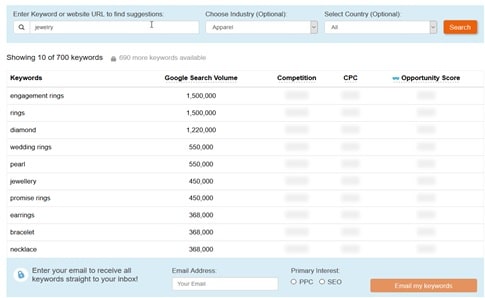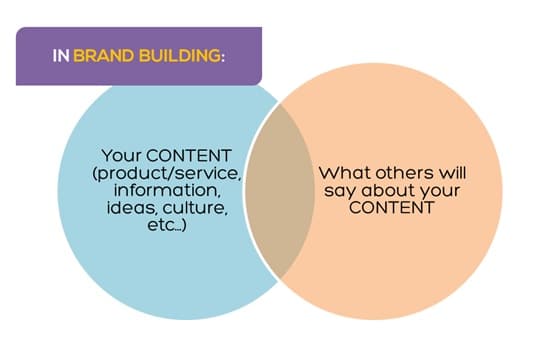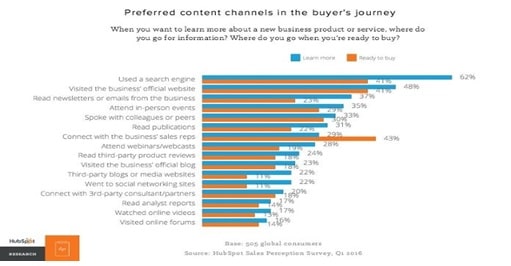People today seek information online and for that, they go through the content that is posted on websites. Even if you have a beautifully designed website, you have to give a knock out performance in terms of high-quality content. This is achieved when you structure your content around keywords. So you need to take your SEO and content marketing seriously.
SEO is a huge spectrum – keywords play a major role in building traffic and promoting organic growth of a website. They act as a tool that somehow helps to bridge the barrier between the vendor and the customer by speaking the language the latter would prefer.
Since search engines avail at least 89% of consumer-based attention before tending to purchase, it is not a hidden fact why marketers wouldn’t deem keyword optimization necessary for linking through. Optimizing your website for search engines with keywords helps to boost your webpage ranking by reaching out to the target audience in the most accessible way possible.
In any search engine digital marketing campaign, optimizing a website with keywords is perhaps the first and foremost rule of SEO.
Enhancing Keyword Optimization
In order to optimize your website with keywords that’d help to boost traffic on search engine results pages (SERPs), pay attention to the following tips and tactics.
Content Strategy
Are you just creating your content in a vacuum? If you create content randomly, you can’t expect to see the desired results. In order to maximize your profits and generate high-quality leads, you need to strategize your content, and that too around a solid SEO.
Relevant Content
You can’t optimize your content with keywords or any target phrases if it’s lacking its credibility and authority in the first place. There is no substitute or replacement of great content and the earlier you realize this, the better. In order to be more accessible, your content needs to speak the language of your target audience.
Images and Graphics
Fill it with relevant images, graphics, short sentences and paragraphs in order to entice the attention of the reader. Add target keywords in your image alt attribute and file names so that they’re optimized as well.
Formatting
Choose relevantly and target keywords that best describe the content on each landing page of your website. Format your content with bold letters and italics, but don’t overdo it as it might seem artificial and too superfluous.
Try to focus on headlines – use H1 and H2 headings – that contain your target keywords so that your target audience knows what the content is about the moment they lay their eyes on them. Structure the content properly with hierarchy corresponding to the content on each landing page of your website.
Publish Frequently
Publish your content frequently – however, it is advisable to publish quality content rather than irrelevant pieces that contain fluff and don’t do justice to the credibility of your website. Mostly, websites that consist of more blogs are easier to rank on search engine results pages as compared to those that contain minimum content.
Meta Data and Tags
Optimize your title tags with keywords so that users can search them in relation to your content both on and off-page. Add SEO keywords in the URL of your website in the form of file slug names as well.
Your content’s metadata is equally as important as the body of your content since it would be displayed on the search engine with projection towards the gist of your entire piece. Try to add a leading long-tail keyword in your meta title and description so that whenever a user enters the keyword, the search engine brings up your content as one of its most relevant searches.

Link Building
Try to integrate your keywords into the anchor texts of your inbound, outbound, navigational and breadcrumb links in order to boost your webpage ranking with SEO. Links are voices that you can integrate from your website to others to help prove your website’s credibility, making it an accessory tool for improved search engine listing and ranking.
How Keyword Optimization Improves Webpage Ranking
Here are some ways through which you can improve webpage ranking by incorporating keyword optimization.
Ensures Brand Building
In order to build your brand, you’ve to focus on two strategies – one, what your company aims to provide to its target audience through its content such as your services, ideas and guidance, and two, what your consumers should expect from you through all of it. Building a brand might involve typical outbound marketing strategies at some point, but in order to be more relevant to a larger consumer-base, you have to incorporate SEO to your inbound marketing strategies as well.

In order to build your brand, try to break down your website into content containing high-optimized keywords so that it shows relevance to your SEO strategy and public profiling. Choose keywords that you think are highly optimized to be searched on the search engine by your target audience and lay out your content in correspondence to them.
Boosts Organic Traffic
With a high ranking on search engines, the ultimate goal of keyword optimization is to bring customers in droves towards your website. This helps to boost organic traffic towards your website which in turn helps you to generate leads for conversions and sales. For instance, take a look at Siege Media’s organic traffic report – it shows how a brand new website earned around 100,000 visitors over the course of a year primarily due to their efforts of SEO.
Provides Access to Target Audience
Approximately 41% of consumers cater to a search engine for a reference regarding a product when they’re sure that they’re ready to spend money on the desirable. Similarly, 48% of consumers prefer to land on a website’s main domain in order to find out more about the product they just discovered through the search engine.
Since the internet helps to bring niche industries together, search engines are an accessible tool for all age groups as they provide easy accessibility and rapid discovery due to keyword optimization and SEO.

Combats Competition
There are several niche companies similar to your business in the industry that opts for Google or other search engines for user accessibility. Since keyword optimization helps to rank your website higher than other niche companies in the industry, it is proven that the first result on any search engine page might warrant up to a 20.5% click-through rate, taking the toll to 13.32% for the second.
If you optimize your website with keywords, then you’re basically luring your competition’s target audience under your hood for maximum business as well.

The Wrap Up
Keyword Optimization helps you to focus on user experience by promoting your website’s credibility and authority as well. One thing leads to another – if users end up scrolling through your website, then they’re most likely to subscribe to your e-mailing list as loyal leads for promising conversions and sales in the near or late future.
Keyword Optimization, therefore, also helps to promote websites that are highly mobile and easy to operate with minimum loading time. This strategy works in correlation to other SEO and content marketing strategies, all of which are primarily useful for any SEO Reseller or Marketer in digital marketing.

